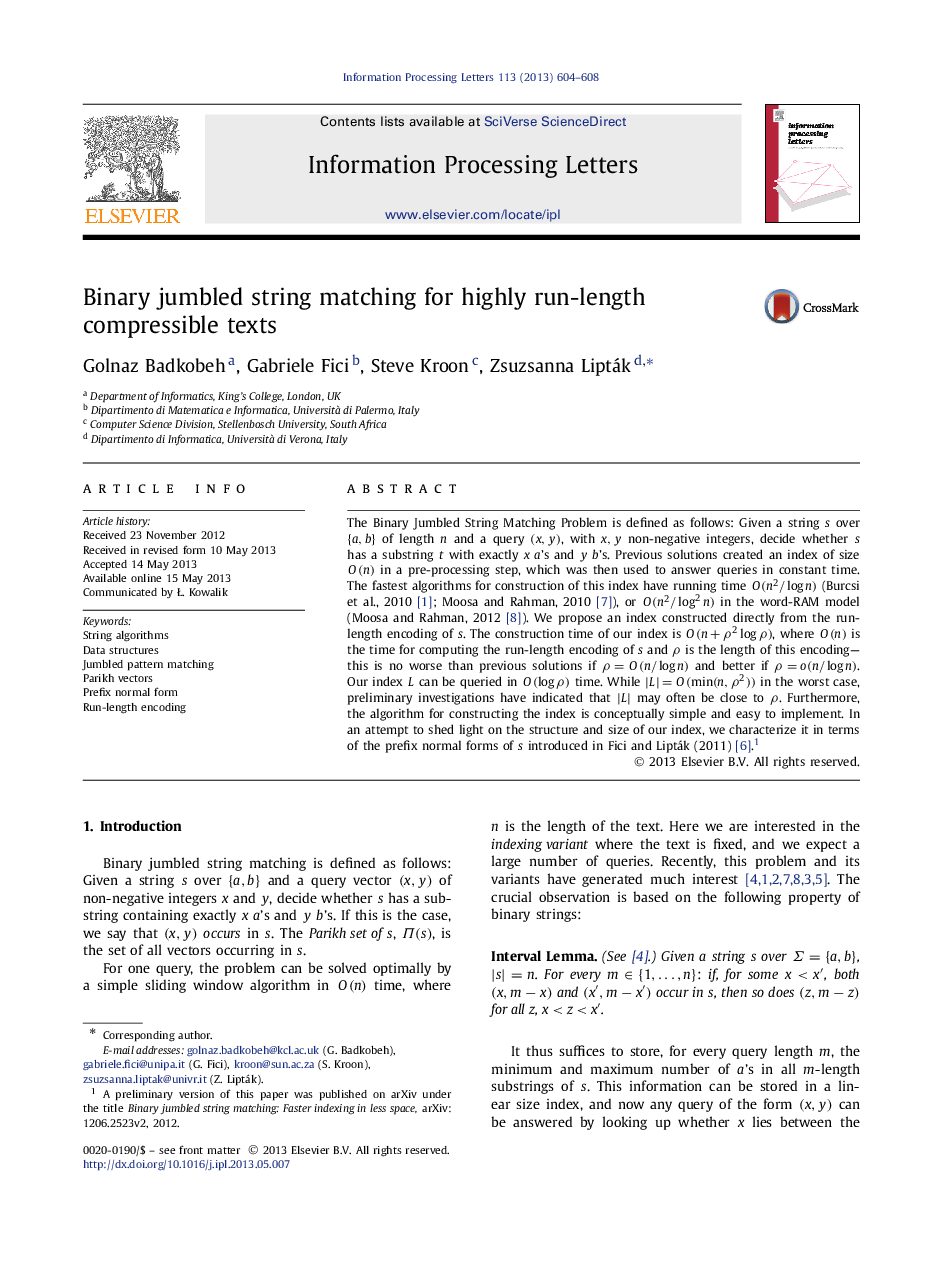| Article ID | Journal | Published Year | Pages | File Type |
|---|---|---|---|---|
| 428944 | Information Processing Letters | 2013 | 5 Pages |
•We present a new index for binary jumbled pattern matching (Corner Index).•It suffices to use full-run substrings to compute the Parikh set of any string.•The algorithm is simple and practical.•We express the Parikh set in terms of rle of the prefix normal forms.
The Binary Jumbled String Matching Problem is defined as follows: Given a string s over {a,b}{a,b} of length n and a query (x,y)(x,y), with x,yx,y non-negative integers, decide whether s has a substring t with exactly x aʼs and y b ʼs. Previous solutions created an index of size O(n)O(n) in a pre-processing step, which was then used to answer queries in constant time. The fastest algorithms for construction of this index have running time O(n2/logn) (Burcsi et al., 2010 [1]; Moosa and Rahman, 2010 [7]), or O(n2/log2n) in the word-RAM model (Moosa and Rahman, 2012 [8]). We propose an index constructed directly from the run-length encoding of s . The construction time of our index is O(n+ρ2logρ), where O(n)O(n) is the time for computing the run-length encoding of s and ρ is the length of this encoding—this is no worse than previous solutions if ρ=O(n/logn) and better if ρ=o(n/logn). Our index L can be queried in O(logρ) time. While |L|=O(min(n,ρ2))|L|=O(min(n,ρ2)) in the worst case, preliminary investigations have indicated that |L||L| may often be close to ρ. Furthermore, the algorithm for constructing the index is conceptually simple and easy to implement. In an attempt to shed light on the structure and size of our index, we characterize it in terms of the prefix normal forms of s introduced in Fici and Lipták (2011) [6].1
